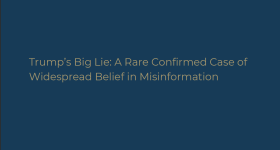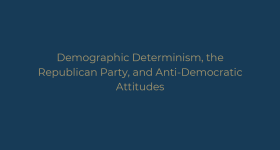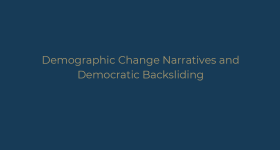A Missed Opportunity to Further Build Trust in AI: A Landscape Analysis of OECD.AI
The world needs a better understanding of how policymakers can effectively encourage AI innovation and adoption, while mitigating potential AI risks.


A Missed Opportunity to Further Build Trust in AI: A Landscape Analysis of OECD.AI
The world needs a better understanding of how policymakers can effectively encourage AI innovation and adoption, while mitigating potential AI risks.

Behavior change apps have the potential to provide individual support on a population scale at low cost, but they face numerous barriers to implementation.

Although experiments show that exposure to factual information can increase factual accuracy, the public remains stubbornly misinformed about many issues.

A Future Built on Data: Data Strategies, Competitive Advantage and Trust
In the twenty-first century, data became the subject of national strategy. This paper examines these visions and strategies.

Correcting COVID-19 Vaccine Misinformation in Ten Countries
What can be done to reduce misperceptions about COVID-19 vaccines?

Protecting Free Speech and Due Process Values on Dominant Social Media Platforms
In recent years, dominant social media platforms have been increasingly perceived as engaging in discrimination against conservative and right-wing viewpoints.

Trump’s Big Lie: A Rare Confirmed Case of Widespread Belief in Misinformation
Accounts of the misinformation problem are filled with examples of “true believers” who have been exposed to, and accept, false claims.

Demographic Determinism, the Republican Party, and Anti-Democratic Attitudes
Following the 2010 Census, demographers and other experts of Census data began calling a definitive coming shift in U.S. racial demographics.

Demographic Change Narratives and Democratic Backsliding
Recently, more attention is needed on how attitudes about democracy are developing among the public.

On the events of January 6th and elite accountability.
I study the political and media elites who seed, fertilize, and reap rewards from online conspiracy, distrust, and deception.
